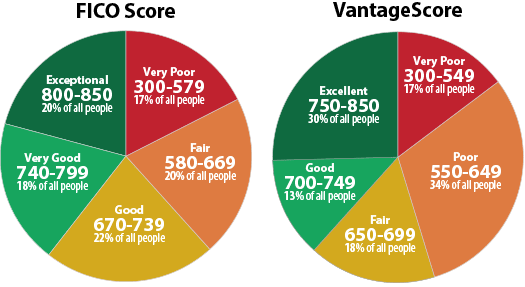After retirement, increasing amounts of debt can make it more difficult for older Americans to make payments on time. When a lapse in payment occurs, these accounts are often sent to collections and the borrower starts to receive contact from debt collectors.
If you or someone you know is receiving contact from a debt collector, take the following steps.
Ask the Collector to Validate the Debt
If you don’t recognize the debt or it seems inaccurate, ask the collector to provide you with a validation of the debt. Past due accounts are often sold to debt buyers making it difficult to determine the original creditor. By writing to the collector, you can request the name of the original creditor and an itemized calculation of the balance claimed, including principal, interest, late fees, etc.
Dispute Inaccurate Information
If you want to dispute the debt, you have 30 days after the debt collector’s initial contact to do so. Write to the collector and provide any documentation that supports your dispute. Request that the collector respond to your dispute in writing.
Stop Harassing Calls
Under the Fair Debt Collection Practices Act (FDCPA), debt collectors can’t threaten, harass, or abuse you in the process of collecting a debt. They can’t give you false or misleading information about the debt or place personal information on, or visible through, an envelope.
If you feel that you’re being harasses, you can write to the collector and request they stop contacting you. The collector must stop contact with you. However, it does not make the debt go away. The collection will likely be assigned to a new agency or law firm collector.
Be sure to keep a log of collection calls noting the date, time of day, name of collector & agency, Caller ID and details of the conversation or phone message.
Seek Free Legal Help
Flitter Milz is a nationally recognized consumer protection law firm that represents victims of abusive collection tactics. Contact Us for a free legal consultation to determine whether your consumer rights have been violated.


 Repossessing a Vehicle
Repossessing a Vehicle
 The lender will send a written
The lender will send a written  If your car, truck, motorcycle, boat, or RV has been repossessed, a qualified consumer protection attorney can evaluate whether your rights have been violated. It will be important for you to provide a copy of your signed
If your car, truck, motorcycle, boat, or RV has been repossessed, a qualified consumer protection attorney can evaluate whether your rights have been violated. It will be important for you to provide a copy of your signed  Whether you fell behind on payments or not, borrowers have legal rights when the lender or repo agent has wrongfully repossessed the vehicle. Flitter Milz is a nationally recognized consumer protection law firm that represents consumers who have had a vehicle wrongfully repossessed.
Whether you fell behind on payments or not, borrowers have legal rights when the lender or repo agent has wrongfully repossessed the vehicle. Flitter Milz is a nationally recognized consumer protection law firm that represents consumers who have had a vehicle wrongfully repossessed.  Protection from Repossession
Protection from Repossession After a vehicle has been repossessed, the lender is required to send proper notices to the borrower. Shortly after the repossession, the lender will send a letter called a Notice of Intent to Sell Property, which confirms the repossession occurred and details terms for to retrieve the vehicle. If the borrower is not able to meet the terms, the lender may choose to sell the vehicle at an auction or private sale. Once the sale has taken place, the lender will send a second letter called a Deficiency Notice, which informs the borrower of the sale price of the vehicle and any remaining balance due. If the borrower is not notified properly, there may be grounds to file a lawsuit against the lender.
After a vehicle has been repossessed, the lender is required to send proper notices to the borrower. Shortly after the repossession, the lender will send a letter called a Notice of Intent to Sell Property, which confirms the repossession occurred and details terms for to retrieve the vehicle. If the borrower is not able to meet the terms, the lender may choose to sell the vehicle at an auction or private sale. Once the sale has taken place, the lender will send a second letter called a Deficiency Notice, which informs the borrower of the sale price of the vehicle and any remaining balance due. If the borrower is not notified properly, there may be grounds to file a lawsuit against the lender. Servicemembers that have fallen behind on payments for auto loans and are facing repossession should seek the advice from a qualified consumer protection attorney to advise on their consumer rights.
Servicemembers that have fallen behind on payments for auto loans and are facing repossession should seek the advice from a qualified consumer protection attorney to advise on their consumer rights.
 Flitter Milz is a nationally recognized consumer protection law firm that represents victims of improper vehicle repossessions. If you think your consumer rights may have been violated by the lender or repo agent,
Flitter Milz is a nationally recognized consumer protection law firm that represents victims of improper vehicle repossessions. If you think your consumer rights may have been violated by the lender or repo agent,  If you’re
If you’re  First and foremost, if there’s a chance that your vehicle will be repossessed, you should take the following actions in preparation:
First and foremost, if there’s a chance that your vehicle will be repossessed, you should take the following actions in preparation: Many consumers who anticipate a repossession wonder if the consequences will be less negative if they voluntarily surrender the vehicle to the lender. The only significant difference between the two is the way they appear on your credit report; a voluntary surrender will be listed as such, but the negative effect will be about the same as a repossession. It’s possible, however, that the lender will be more willing to enter a loan agreement with you in the future if you voluntarily surrender the vehicle.
Many consumers who anticipate a repossession wonder if the consequences will be less negative if they voluntarily surrender the vehicle to the lender. The only significant difference between the two is the way they appear on your credit report; a voluntary surrender will be listed as such, but the negative effect will be about the same as a repossession. It’s possible, however, that the lender will be more willing to enter a loan agreement with you in the future if you voluntarily surrender the vehicle. If you are having difficulty making payments, contact your lender as soon as possible. You may be able to avoid repossession by
If you are having difficulty making payments, contact your lender as soon as possible. You may be able to avoid repossession by  Whether you have fallen behind on your car payments or not, there are legal protections for borrowers from lenders and repo agents that wrongfully repossess vehicles.
Whether you have fallen behind on your car payments or not, there are legal protections for borrowers from lenders and repo agents that wrongfully repossess vehicles. 





